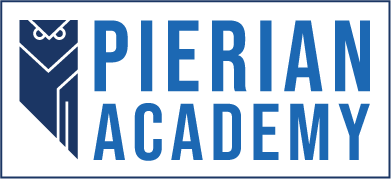Strong reliability engineering drives performance, cuts downtime, improves safety, and lowers costs. Pierian Academy’s training prepares professionals to anticipate issues, strengthen systems, and exceed customer expectations.
Reliability engineering training is vital in today’s competitive landscape. It provides professionals with the knowledge of best practices and industry standards necessary to enhance operational efficiency and organizational performance.
Why Reliability Engineering Training is Important
It helps engineers and technicians identify potential failures before they occur. Trained employees can quickly solve problems, resulting in fewer interruptions and lower costs. Organizations that invest in reliability engineering training see improved productivity and reduced maintenance expenses. Practical reliability training enables companies to extend the useful life of their assets and maximize their investment.
Key Reliability Engineering Training Courses
Pierian Academy offers a variety of courses to improve reliability skills.
These courses include:
1. Reliability Centered Maintenance Training (RCM Training)
This training shows participants how to choose maintenance strategies based on risk and importance. Companies that utilize RCM reduce maintenance costs and enhance equipment reliability. The RCM course covers real-world examples, practical exercises, and clear explanations. Participants learn systematic approaches for determining maintenance priorities and effectively managing resources.
2. Level of Repair Analysis Training (LORA Training)
The Level of Repair Analysis course provides clear steps for evaluating costs, downtime, and logistical factors. LORA training helps organizations choose cost-effective maintenance methods. Professionals trained in LORA reduce downtime by making informed decisions about repair levels and resource allocation.
3. Product Support Analysis Training (PSA Training)
PSA identifies necessary resources and services to support products through their life cycle. The course emphasizes simple, practical methods to plan effective support strategies. PSA training is crucial for ensuring continuous and reliable support, mitigating risks, and optimizing overall product lifecycle management.
4. Maintenance Task Analysis Training (MTA Training Programs)
Participants learn to evaluate tasks and optimize maintenance schedules. MTA training programs guide professionals through clear and easy-to-understand processes. The MTA ensures that maintenance tasks are relevant, necessary, and performed at optimal intervals, minimizing unnecessary work and conserving resources.
Benefits of Reliability Engineering Training
Training in reliability engineering provides numerous benefits:
- Cost Reduction: Organizations save money by identifying and addressing issues early. This prevents costly breakdowns and downtime.
- Improved Productivity: Reliable systems operate efficiently, enabling teams to focus on their primary tasks without frequent interruptions.
- Enhanced Safety: Training enables teams to recognize and mitigate risks, resulting in safer work environments.
- Better Customer Satisfaction: Reliable products consistently satisfy customer expectations and improve company reputation.
- Extended Equipment Lifespan: Proper reliability practices can extend equipment life, reducing replacement costs.
- Better Resource Management: Trained personnel efficiently allocate resources, avoiding waste.
Who Should Take Reliability Engineering Training?
Reliability engineering training suits professionals in various roles, including:
- Maintenance Managers
- Engineers
- Technicians
- Operations Managers
- Quality Assurance Specialists
- Project Managers
- Facility Supervisors
- System Analysts
These courses will benefit anyone responsible for equipment, systems, or products.
How to Get Started
Pierian Academy offers structured courses designed to meet industry standards. Its courses are easily accessible and have clear instructions. Professionals can register online and choose from regularly scheduled classes. Flexible formats, including online and in-person options, allow participants to learn at their own pace and convenience.




